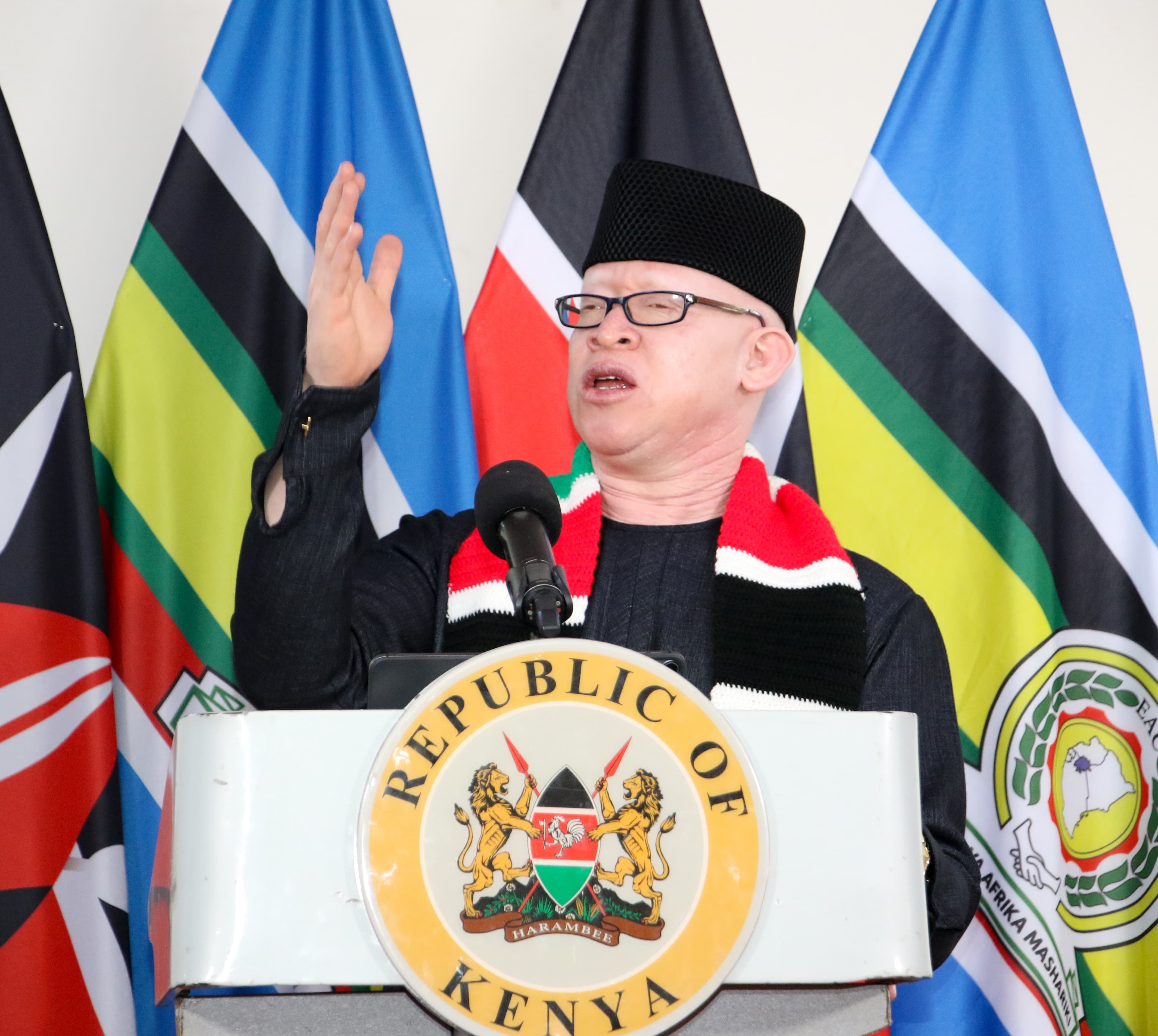
The Kenya Kwanza government has listed what it considers significant strides in stabilising the economy with government spokesman Isaac Mwaura saying it's a demonstration of resilience in the face of challenges.
Mwaura said government's resilience and unwavering determination continues to shape a country where no Kenyan is left behind.
While highlighting government's scorecard on Monday, Mwaura said Kenya Kwanza's economic transformation is anchored on five key pillars of Agriculture, Affordable Housing and Universal Healthcare.
Others are the Micro, Small and Medium Economies (MSMEs), Digital Superhighway, and Creative Economy.
“The government has successfully stabilised the Kenya shilling, bolstering investor confidence and ensuring macroeconomic stability,” Mwaura said.
“Amid challenging global economic conditions, Kenya has also honoured its international financial commitments, including the timely repayment of the Eurobond, reinforcing its credibility in global financial markets.”
Mwaura said the implementation of Electronic Travel Authorization (ETA) in the tourism sector has modernised entry processes, contributing to a substantial increase in tourist arrivals from 1.48 million to 2.5 million.
In the Health sector, the spokesman said the government has engaged 107,000 Community Health Promoters (CHPs) to support the vision of a functional national healthcare system.
He said the health champions have registered 7.8 million households with the Social Health Authority (SHA), with a target to reach 12.5 million households to champion promotive and preventive healthcare.
"They have screened 6.5 million Kenyans for diabetes, resulting in 126,000 individuals being referred to healthcare facilities for further assessment," Mwaura said.
He added that the CHPs have screened four million Kenyans for hypertension, with 318,000 referred for additional care while they have also identified and referred 247,000 pregnant women to antenatal clinics for critical maternal health services.
“In just two months, Taifa Care has registered over 16.5
million Kenyans under the Social Health Insurance Fund (SHIF), including 5.6 million
citizens transitioned from the National Health Insurance Fund (NHIF).”
In agriculture, Mwaura said that farmers have greatly benefited from the fertiliser subsidy programme with a 67 per cent reduction in fertiliser costs, from Sh7,500 to Sh2,500 per 50kg bag, leading to increased production.
As a result, 95 million bags of maize, 10 million bags of wheat and two million bags of rice are now available, significantly strengthening the national food stockpile and reducing famine risks, he said.
He added that the cost of unga has decreased by 52 per cent from Sh230 to about Sh100 per 2kg packet, making staple foods more affordable.
Mwaura added that the dairy sector is thriving, with farmers now earning 33 per cent higher guaranteed minimum returns.
“A liter of milk now sells at Sh50, way higher than the gazette guaranteed minimum return of Sh33.11. Our leather industry has recorded a 23.5 per cent growth in employment, creating 21,000 new job opportunities.”
According to the government spokesman, a total of 124,000 affordable housing units are at different stages of development with 4,888 units already put up for sale through the Boma Yangu platform.
He said that over 550,000 Kenyans have registered for home ownership through the platform, with allocations done upon project completion.
“To date, the programme has generated 200,000 direct jobs, with projections to achieve one million jobs in the next four years when the government rolls an additional 840,000 units. Additionally, a total of 213 artisans have undergone comprehensive assessment and certification under the government's artisan development program,” Mwaura added.
To address the longstanding grievances of healthcare professionals, Mwaura said the Ministry of Health and the Council of Governors (CoG) signed a Collective Bargaining Agreement (CBA) to ensure intern doctors receive a monthly salary of Sh206,000 up from Sh70,000.
He said the agreement also includes the payment of basic salary arrears owed to medical interns.
Mwaura said the digitisation of over 20,855 government services on the eCitizen portal has enhanced service delivery, transparency and revenue mobilisation.
These efforts, he added, position Kenya as a regional hub for digital innovation and exports.
The government spokesman said that the government has also operationalised 274 digital hubs and is collaborating with the private sector to create 1450 other hubs in every ward to create job opportunities.
“Through the Ajira Digital and Jitume Digital initiatives, the government has equipped 690,000 citizens with ICT skills. The Jitume hub in Rift Valley Institute of Technology (RVIST) has employed over 200 youths who in turn have generated over Sh3, 000,000 in revenue,” Mwaura said.
He said that as Kenyans move into 2025, they can expect sustained efforts to build on the achievements.
Mwaura added that the focus will remain on enhancing productivity, fostering innovation, and ensuring inclusivity in all sectors.
“While challenges persist, including economic pressures and global uncertainties, the government is committed to navigating them with courage, determination, and ambition," he said.
"We urge all Kenyans to remain optimistic
and actively participate in shaping our nation’s future, for we reaffirm that
the government is on course towards fulfilling the promises it made to Kenyans.”












